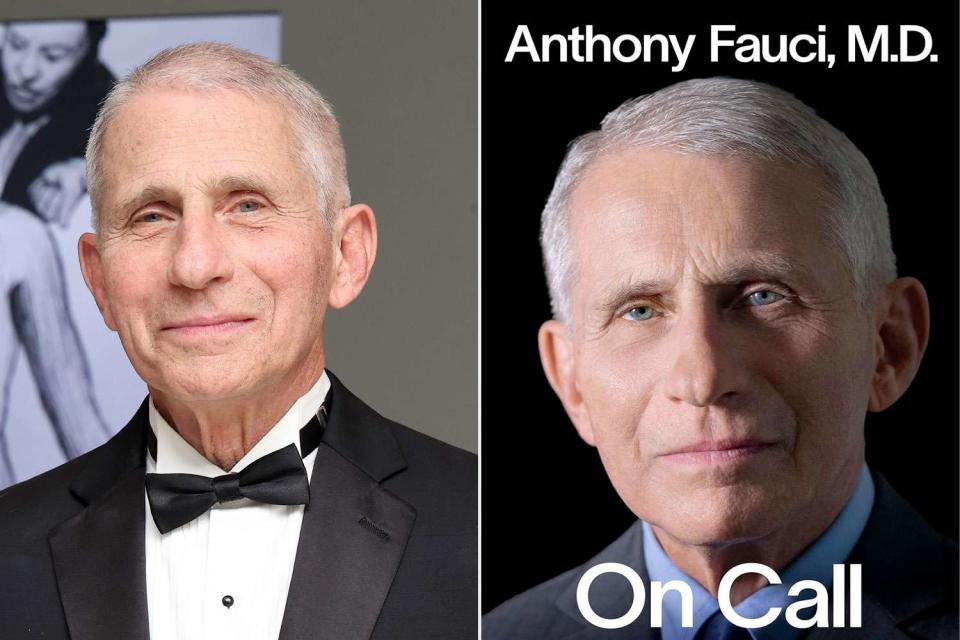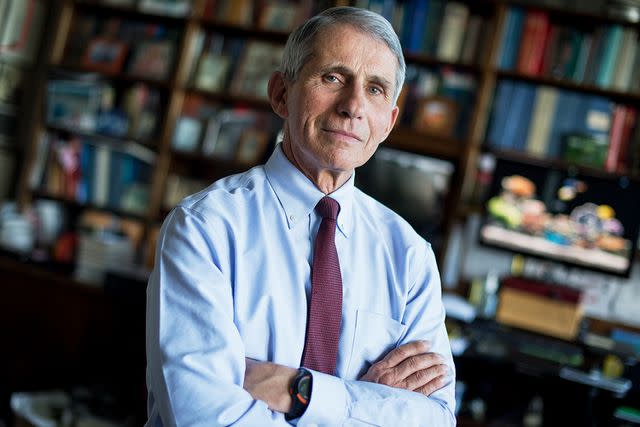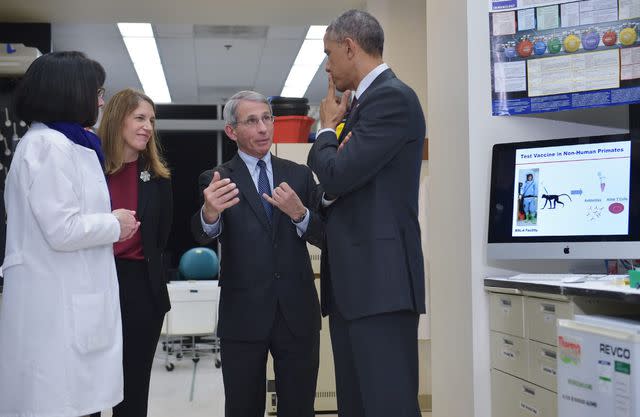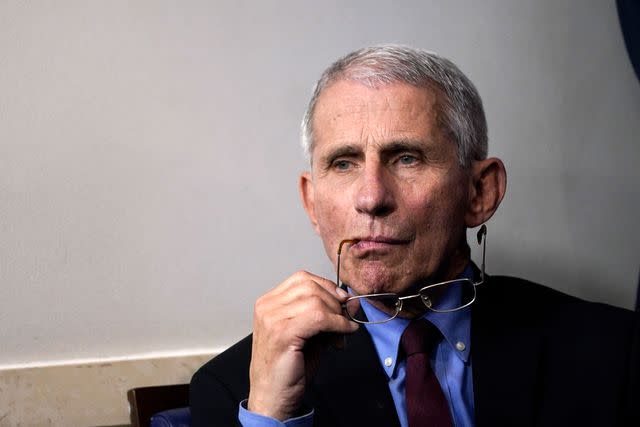Dr. Anthony Fauci's 'Brooklyn Tough' Attitude Got Tested Early On: Read an Excerpt from His New Memoir (Exclusive)
In 'On Call: A Doctor's Journey in Public Service' he details the heartbreaking medical school moment his training his very close to home

Paul Morigi/Getty; courtesy amazon
Dr. Anthony Fauci and his new book, 'On Call'Dr. Anthony Fauci is a household name the way few other doctors are. He was one of PEOPLE's four People of the Year in 2020 for his guidance in the fight against the COVID-19 pandemic, but that was far from the first time Fauci found himself at the forefront of an epidemic.
The Brooklyn-born doctor, 83, served as the director of the National Institute of Allergy and Infectious Diseases for four decades and advised seven presidents. During that time, he helped guide public policy on HIV/AIDS, SARS, MERS, avian influenza, swine flu, Zika and Ebola.
For his work, he has received the Presidential Medal of Freedom, the National Medal of Science and the Mary Woodard Lasker Award for Public Service and has been awarded 62 honorary doctoral degrees. After retiring from NIAID in 2023, Fauci now serves as Distinguished University Professor at Georgetown University with a joint appointment in the School of Medicine and the McCourt School of Public Policy.

Related: Dr. Anthony Fauci's Next Role: Professor at Georgetown
His new book, On Call: A Doctor's Journey in Public Service (out June 18) takes readers through his extensive contributions to science and medicine, but it all starts where Fauci's roots do: the Brooklyn neighborhood where he grew up.
"I joke about it, that Brooklyn tough suck-up-attitude that you focus on what your job is, and all that other stuff as unpleasant as it is, is a distraction," he tells PEOPLE. "What's really important is your job. Saving lives, promoting public health and your family. Anything else is nonsense."

Fauci, the son of Eugenia Lillian and Stephen A. Fauci grew up in an apartment above the pharmacy his father owned, working the register with his mother and sister, and delivering prescriptions. His family and Jesuit education instilled in him a strong work ethic, a stiff upper lip and a focus on the humanity of his patients that contributes to what he calls "the art and science" of medicine.
"The science is making the right diagnosis. The science is ordering the right medication. That's the science of medicine," he explains. "The art of medicine is how you deal with the individual human being. And that's the thing that's driven me in all of my interactions in medicine and science, that the patient is the focus of everything. You do not treat the disease. You treat the patient."
Never miss a story — sign up for PEOPLE's free daily newsletter to stay up-to-date on the best of what PEOPLE has to offer , from celebrity news to compelling human interest stories.
Keeping that balance in mind has been key to his work, as shifting his attention where it matters most — something he may have honed on the basketball court as a teen.
"I am pretty good at compartmentalizing and just shutting stuff out," he says. "You gotta train yourself for it and I think my upbringing trained me well for that."
Below, in an exclusive excerpt shared with PEOPLE, Fauci details one of the first times he had to do just that.

Nothing could have prepared me for the day during my fourth year when my mother came to visit [and] told me that she felt weak and bloated and had lost her appetite. Having just finished my rotation on the internal medicine ward, I felt a jolt in my gut. I immediately set up an appointment for my mother, who was 56 years old, with my attending physician, Dr. David M. Roseman. Dr. Roseman saw her in his office within two days.
“Tony, I am very sorry, but I believe the situation is serious,” he said. “It is likely a cancer.”
I felt numb, but for the first time I was thinking about my mother both as a son and as a physician. What next? She needed surgery for a definitive diagnosis, so the attending surgeon, Dr. Henry Mannix, did an open biopsy. Again, a call that I kind of expected: “Tony, your mother has a liver full of tumor, and the prognosis is really very bad.” The only thing to do for my mother was to keep her comfortable. I was training to be a physician, and here I was helpless. I took the subway to Brooklyn and told my father. It was one of the most painful moments in my young life. He was crushed.
My mother died eight short weeks later. My father had lost the love of his life. I did not have the luxury of grieving properly. I was in the middle of my surgery rotation in my final year of medical school. We buried my mother in Green-Wood Cemetery in Brooklyn and I had to be back on call on the wards the next night. I stuffed my painful feelings down deep and put my energy into saving the lives that were possible to be saved.
Adapted from ON CALL by Anthony Fauci, M.D. Published by Viking, an imprint of Penguin Publishing Group, a division of Penguin Random House LLC. Copyright © 2024 by Anthony S. Fauci.
On Call: A Doctor's Journey in Public Service is on sale now, wherever books are sold.
For more People news, make sure to sign up for our newsletter!
Read the original article on People.


